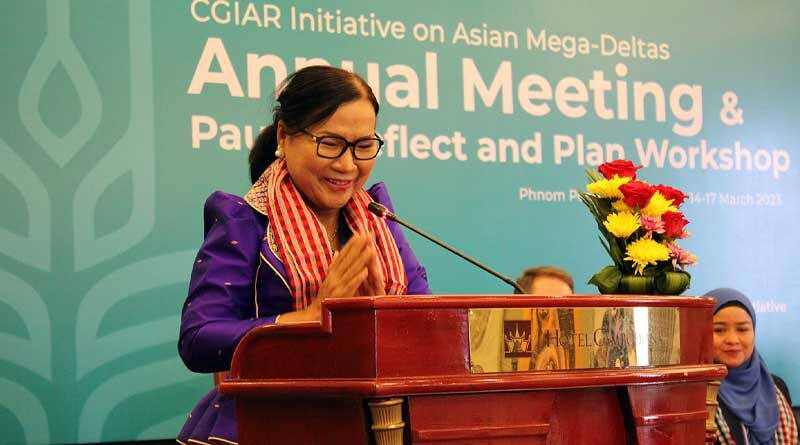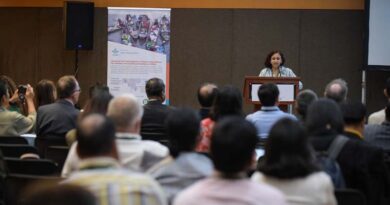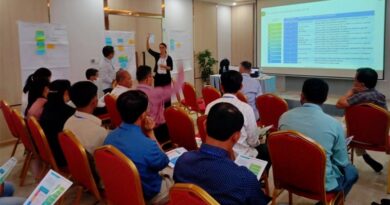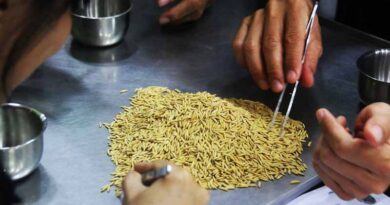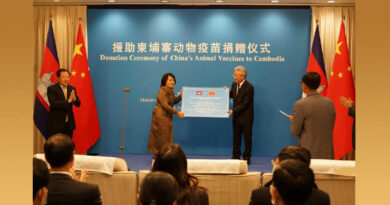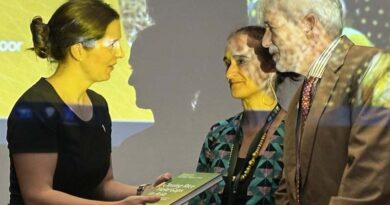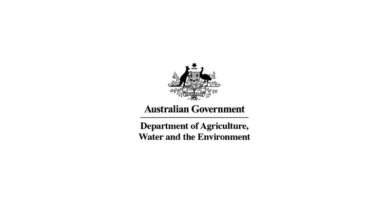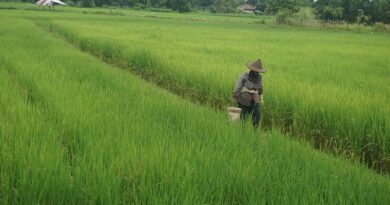Strengthening partnerships and programs for Asian Mega-Deltas
17 March 2023, Cambodia: To strengthen its strategy, cooperation, and results management, the CGIAR Initiative on Asian Mega-Deltas (AMD) conducted its Annual Meeting and Pause, Reflect, and Plan Workshop in Phnom Penh, Cambodia from 14 to 17 March 2023.
The workshop aims to provide a space for national partners and OneCGIAR scientists to reflect on the progress and achievements of the AMD Initiative in some of its priority countries, namely Bangladesh, Cambodia, and Vietnam. The participatory activities and country-driven sessions will be done by jointly refining the impact pathway, analyzing gaps, and action planning for the following implementation years of the AMD Initiative, ensuring sustainable and country-owned outcomes.
The workshop was attended by officials and representatives of the various government ministries and agencies, CGIAR centers, academe, international organizations, the private sector, local governments, and other relevant stakeholder groups.
Dr. Jean Balie, Regional Director for Southeast Asia and the Pacific for CGIAR, shared that the AMD Initiative aims “to create resilient, inclusive, and productive deltas by removing systemic barriers to the scaling of transformative technologies and practices at community, national, and regional levels.”
Dr. Balie stressed that through the AMD Initiative, “all the sectors working for the deltas will have a platform for collaborative research for development and knowledge sharing that will empower not only the research partners but most especially the smallholders and vulnerable sectors that depend their livelihoods on the deltas.”
Dr. Bjoern Ole Sander, lead of AMD and senior scientist at the International Rice Research Institute (IRRI), proudly shared the accomplishments of the Initiative in its first year of implementation. For 2022, AMD not only produced almost 100 new knowledge products, provided input to 9 policy changes in the AMD focus countries, and curated 8 innovations under development but also reached 160,000 farmers and other innovation users and trained 7,000 people in 30 capacity development activities.
He also shared that AMD innovations have been adopted in several national government policies, such as the Climate-Smart Mapping and Adaptation Planning (CS-MAP) approach in Vietnam’s Green Growth Strategy and alternate wetting and drying (AWD) in their updated Nationally Determined Contributions for the agriculture sector as well as in Bangladesh’s National Adaptation Plans in agriculture.
Dr. Sander reported that AMD has been supporting Cambodia’s adaptation and mitigation strategies, particularly in the four delta provinces of Kandal, Takeo, Prey Veng, and Svay Rieng by building learning alliances, promoting nutrition-sensitive interventions, developing digital climate advisory, testing socially-inclusive governance models, and supporting evidence-based development planning.
H.E. Dr. Chan Phaloeun, Undersecretary of State of the Ministry of Agriculture, Forestry and Fisheries acknowledged the work that the AMD Initiative has already started, such as the workshop to build a network of diverse stakeholders in the provinces of Takeo and Prey Veng and the training workshop on Climate-Smart Maps and Adaptation Plans (CS-MAP) for the delta provinces.
She also wishes all the participants, representing the different delta countries and stakeholder groups, to actively participate in the workshop and to take the opportunity to give the AMD team the necessary ideas and feedback to not only ensure sustainable and country-owned outcomes from the Initiative but also to make AMD truly responsive to the needs of the smallholder farmers and the other marginalized sectors in the deltas.
Also Read: Benefits of Coromandel Nano DAP for Crops
(For Latest Agriculture News & Updates, follow Krishak Jagat on Google News)

